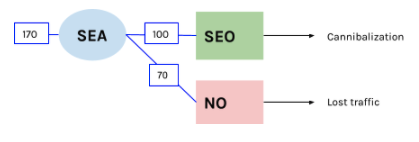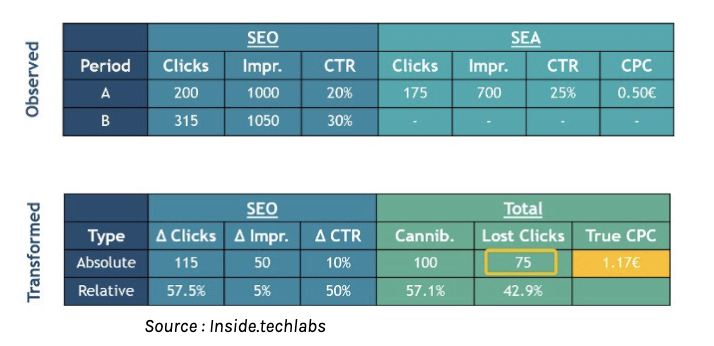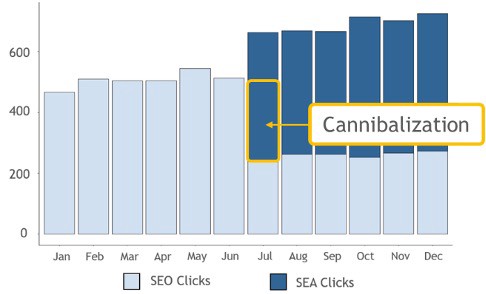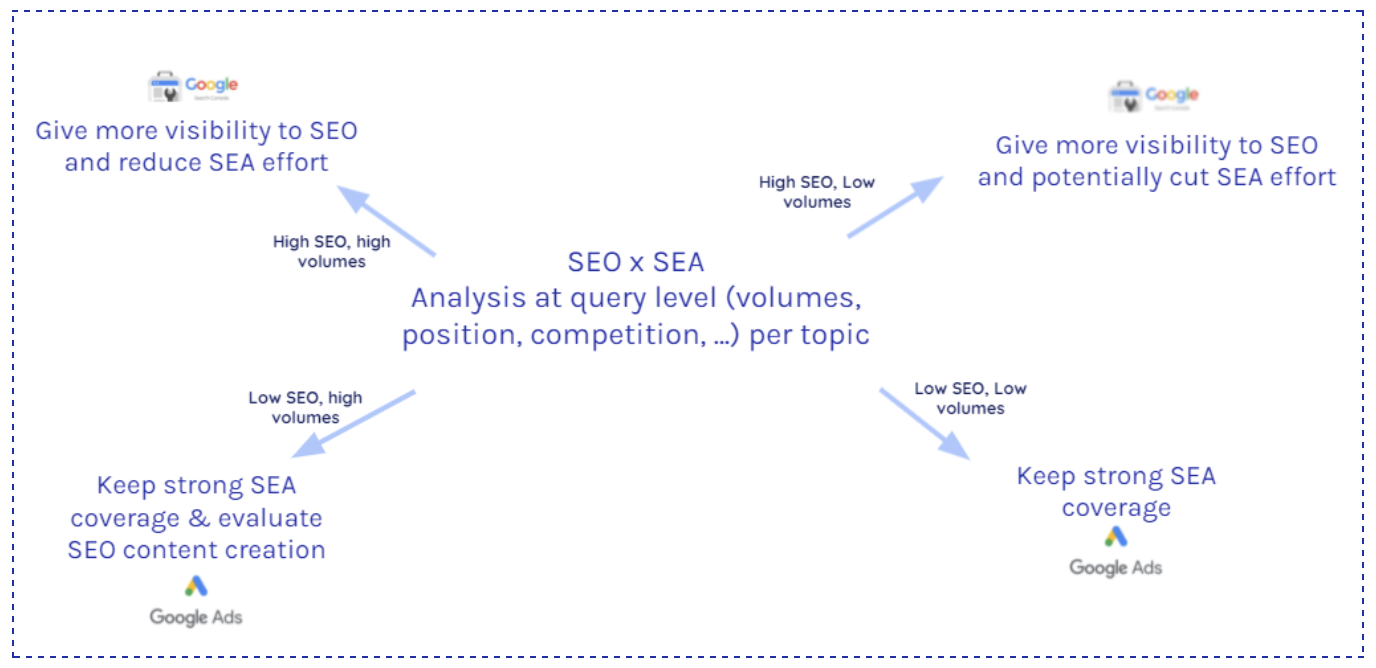Are you wondering how much the keywords you bid on in SEA are cannibalising your organic results? You are not alone! Indeed, the question of whether or not to position yourself on the brand name is a recurring question!
So how can you improve the SEO/SEA synergy?
The answer to this question depends first of all on the ability to quantify cannibalisation:
- How many people who click on the ad would also click on the organic link if the ad was not present?
- How many would not click at all?

What process should be used?
The first step is to carry out tests in order to quantify the cannibalisation between the two.
To do this, A/B tests must be carried out on a sample of keywords. We will therefore concentrate on a period when we are present in SEO and SEA, followed by a period only in SEO. Then, in order to confirm the test and minimise external factors, the test is repeated a second time.

Thanks to this test, we are able to quantify the lost clicks, as well as the clicks cannibalised by the SEA. This makes it possible to calculate the "real" CPC and thus to define whether or not we wish to position ourselves in SEA.


On which keywords should this test be carried out?
In order to determine on which keywords we want to carry out this A/B testing, we analyze, on the one hand in organic, the Queries in Google Search Console and, on the other hand in paid, the Keywords in Google Ads.
We will therefore test the keywords whose average position in SEO is better than a certain threshold that we define.
Then, on the basis of this test, combined with observations at the level of the queries, it is possible to carry out optimisations such as
- Pausing certain keyword series
- Reducing the ATS pressure
- Creating content on certain topics to strengthen the SEO position

Source : https://inside-techlabs.medium.com/sea-vs-seo-analysis-quantification-of-cannibalization-effects-bac9ec4591f3



